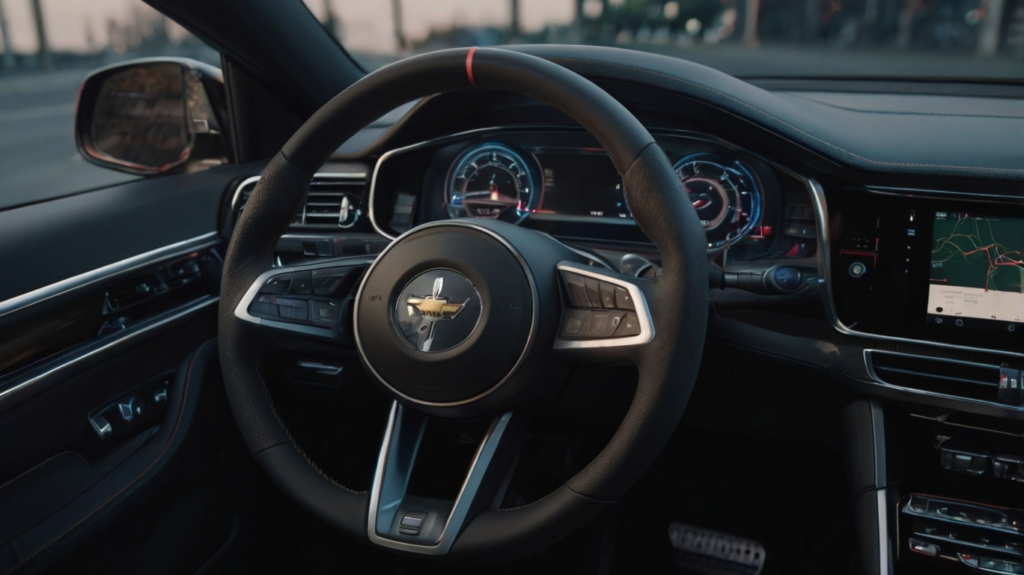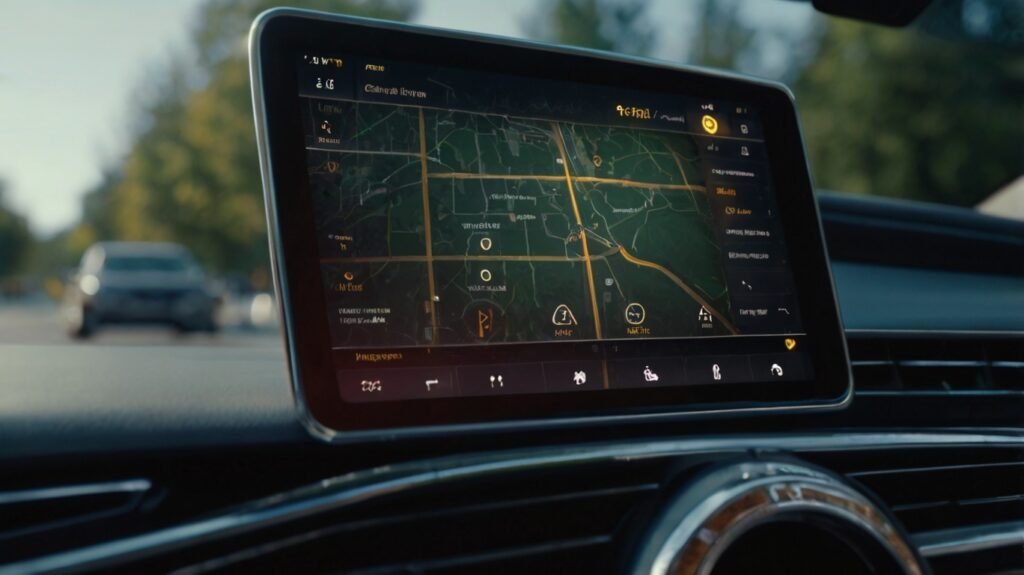The automotive industry is evolving faster than ever, and at the heart of this transformation is Artificial Intelligence (AI). By 2025, we can expect AI to revolutionize the way we drive, interact with our cars, and even how we maintain them. From autonomous driving systems to smarter infotainment experiences, AI will be a key player in shaping the cars of tomorrow. In this article, we’ll take a closer look at the top AI technology trends in cars to watch for in 2025.
1. Autonomous Driving Systems

Perhaps the most exciting AI development in cars is autonomous driving. By 2025, many car manufacturers aim to launch fully autonomous vehicles that require little to no input from the driver. AI-powered systems like Tesla’s Autopilot, Waymo, and others are already paving the way. These systems use a combination of sensors, cameras, and machine learning algorithms to navigate roads, recognize obstacles, and make real-time decisions.
The future of self-driving cars will offer increased safety, fewer accidents, and reduced traffic congestion. However, as exciting as this technology is, challenges remain in terms of regulation, ethics, and infrastructure development. By 2025, we’ll likely see a significant leap in the adoption of autonomous driving, especially in controlled environments like highways and urban areas. Learn more about autonomous driving technology here.
2. AI-Powered Safety Features

In addition to autonomous driving, AI will enhance the safety of drivers and passengers with advanced driver assistance systems (ADAS). These systems, already present in many cars today, will become more refined in 2025. Features such as lane-keeping assist, adaptive cruise control, automatic emergency braking, and collision detection will become smarter and more reliable.
AI will also enable predictive safety features, which can anticipate potential accidents by analyzing real-time data from sensors and cameras. For example, AI could detect if a driver is drowsy or distracted and alert them before an accident occurs. This proactive approach to safety will save lives and help prevent accidents before they happen. Explore more on advanced safety features.
3. AI-Powered Infotainment Systems

Car infotainment systems have come a long way in recent years, and by 2025, AI will make them even more intuitive and personalized. AI-driven systems will learn drivers’ preferences, habits, and even moods to provide customized experiences. For instance, AI might adjust the cabin temperature, lighting, and even suggest music or routes based on your emotional state.
Voice recognition will also improve significantly. Drivers will be able to interact with their cars in a more natural, conversational way. AI will understand complex commands, from adjusting settings to answering questions about the weather, nearby restaurants, or traffic conditions. These advancements will make driving more enjoyable, seamless, and distraction-free. Read about how AI is shaping the future of infotainment.
4. Predictive Maintenance

AI will play a crucial role in car maintenance by predicting issues before they arise. By 2025, cars will be equipped with sensors that constantly monitor key components such as the engine, brakes, tires, and battery. AI algorithms will analyze this data to predict when parts are likely to fail and alert drivers in advance.
This predictive maintenance technology will save drivers money on costly repairs by allowing them to fix problems before they become major issues. It will also reduce downtime, ensuring cars remain on the road longer and more efficiently.
5. Personalized Driving Experience

As AI evolves, the driving experience will become more tailored to individual drivers. For example, AI could create personalized driving profiles, adjusting settings like seat position, mirror angles, and climate control based on who is behind the wheel. These preferences could be stored in the cloud, allowing users to access them across different vehicles.
Additionally, AI will be used to optimize driving behavior. By learning a driver’s habits, AI could suggest the most fuel-efficient routes or help reduce energy consumption in electric vehicles. This level of personalization will enhance convenience and contribute to a more sustainable driving experience.
6. AI in Electric Vehicles (EVs)

The rise of electric vehicles (EVs) in recent years has been closely tied to advancements in AI technology. In 2025, we can expect AI to play a significant role in the performance and efficiency of EVs. AI will optimize battery management systems, improving charging times and extending the lifespan of batteries.
AI will also assist in route planning for EVs by considering factors such as charging station availability and battery life. This will make long-distance travel in electric vehicles more convenient, alleviating concerns about range anxiety. Learn more about AI’s impact on EV batteries at IBM.
7. AI-Enhanced Vehicle Security

Vehicle security is another area where AI will make a significant impact. By 2025, AI will be integrated into car security systems to provide enhanced protection against theft. AI-powered systems can detect unusual behavior, such as a break-in attempt, and immediately alert the owner or the authorities.
Facial recognition technology and biometrics will also be used to verify the identity of the driver, ensuring that only authorized individuals can access the vehicle. This added layer of security will give car owners peace of mind and make it more difficult for thieves to steal vehicles.
8. Vehicle-to-Everything (V2X) Communication

One of the most promising AI-powered innovations on the horizon is Vehicle-to-Everything (V2X) communication. V2X technology enables cars to communicate with other vehicles, infrastructure, pedestrians, and even traffic lights. By 2025, this communication will be more integrated into vehicles, allowing them to react in real-time to road conditions, accidents, and other vehicles.
For example, V2X could allow a car to automatically slow down or change lanes if it detects an upcoming accident, construction zone, or emergency vehicle. This level of connectivity could reduce accidents and create smoother traffic flow, making roads safer and more efficient.
9. Sustainability Through AI.
Sustainability is becoming an essential consideration in the automotive industry, and AI will play a vital role in making cars more eco-friendly. AI-driven systems will optimize energy consumption in electric and hybrid vehicles, helping to reduce emissions. Moreover, AI can also assist in vehicle manufacturing by predicting and reducing waste and ensuring optimal use of materials.
As AI continues to evolve, the ability to analyze large amounts of data will allow manufacturers to develop more sustainable production methods, creating cars that are not only smarter but also greener.
Conclusion
AI is set to transform the automotive industry in ways we can only begin to imagine. From fully autonomous driving systems to smarter, more personalized in-car experiences, AI technology will be the driving force behind many of the most exciting innovations in cars by 2025. As the industry continues to evolve, we can expect to see safer, more efficient, and more enjoyable vehicles on the road, all powered by cutting-edge AI advancements.
By embracing these AI trends, automakers are not only enhancing the driving experience but also paving the way for a more sustainable, connected, and intelligent future of mobility.




